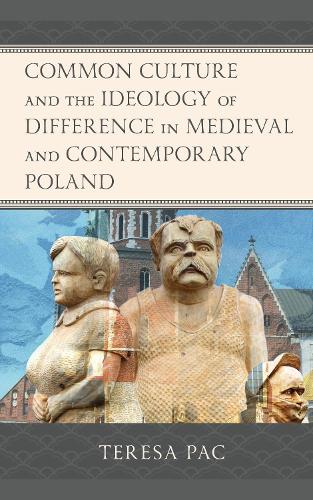
Common Culture and the Ideology of Difference in Medieval and Contemporary Poland
(Hardback)
Publishing Details
Common Culture and the Ideology of Difference in Medieval and Contemporary Poland
By (Author) Teresa Pac
Bloomsbury Publishing PLC
Lexington Books
10th February 2022
United States
Classifications
Professional and Scholarly
Non Fiction
European history
943.802
Physical Properties
Hardback
346
Width 160mm, Height 227mm, Spine 28mm
730g
Description
The author enters a much-needed discussion on shared culture as foundational to societal survival. Through the examination of common culture as a process in medieval Krakw, Pozna, and Lublin, the author challenges the ideology of difference, including institutional, religious, ethnic, and nationalistic. In their denial of ethnic and religious diversity, the author contends, medieval rulers employed the Catholic Church's moral authority, which had been tested in Western European societies. Similar, the author maintains, twenty-first century Polish leaders utilize anachronistic approaches in the invention of Polish Catholic identity to counteract the country's increasing ethnic and religious diversity. As in the medieval period, the contemporary Polish political and social elites subscribe to the European Union's ideology of difference, legitimized by a European Christian heritage, and its intended basis for discrimination against non-Christians and non-white individuals under the auspices of democratic values and minority rights, among which Muslims are a significant target.
Author Bio
Teresa Pac is associate professor at the University of Central Oklahoma.
